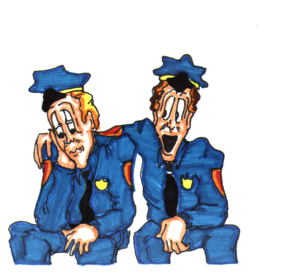Police Psychology | Stalking the Stalker
Hamish Brown, MBE
Hamish retired in 2004 as a Detective Inspector on the Specialist Crime Directorate at New Scotland Yard after over 30 years service with the Metropolitan Police, London England
It is easy to think stalking is all about celebrities and the stars, after all when we see any news item about stalking it is usually associated with those people. It is true, of course, the stalking of celebrities is a rising and serious problem. The growth of the technical sophistication of the media, the rise of the internet and the unparalled access to information have all contributed to provide a dangerous basis on which stalkers can survive.
The threat is real to celebrities but this is only the tip of the iceberg as the over whelming number of people who are stalked are ordinary members of the public. They do not have their own lawyers, agents and security but are the often anonymous victims of stalking who have to fend for themselves. They are attacked every day with a terror that is real to them but unknown by others. (more…)
 Thin Blue Mind / Smokey Heroes
Thin Blue Mind / Smokey Heroes

 together as a team to stop crime. Not one of their powers is complete, but together they are unstoppable. In fact in each adventure, at least one of them is in jeopardy, but gets saved by the other. They are effective as a team and that is why we like them so much.
together as a team to stop crime. Not one of their powers is complete, but together they are unstoppable. In fact in each adventure, at least one of them is in jeopardy, but gets saved by the other. They are effective as a team and that is why we like them so much.  to be in the program “peer counselors”. The programs were originally created, because of the increase in alcohol abuse and the disciplines surrounding the abuse. Their programs followed the Alcoholics Anonymous 12-step program. The peer counselors (supporters) were in “recovery” and it was assumed the best fit to help others with their alcohol problems.
to be in the program “peer counselors”. The programs were originally created, because of the increase in alcohol abuse and the disciplines surrounding the abuse. Their programs followed the Alcoholics Anonymous 12-step program. The peer counselors (supporters) were in “recovery” and it was assumed the best fit to help others with their alcohol problems.